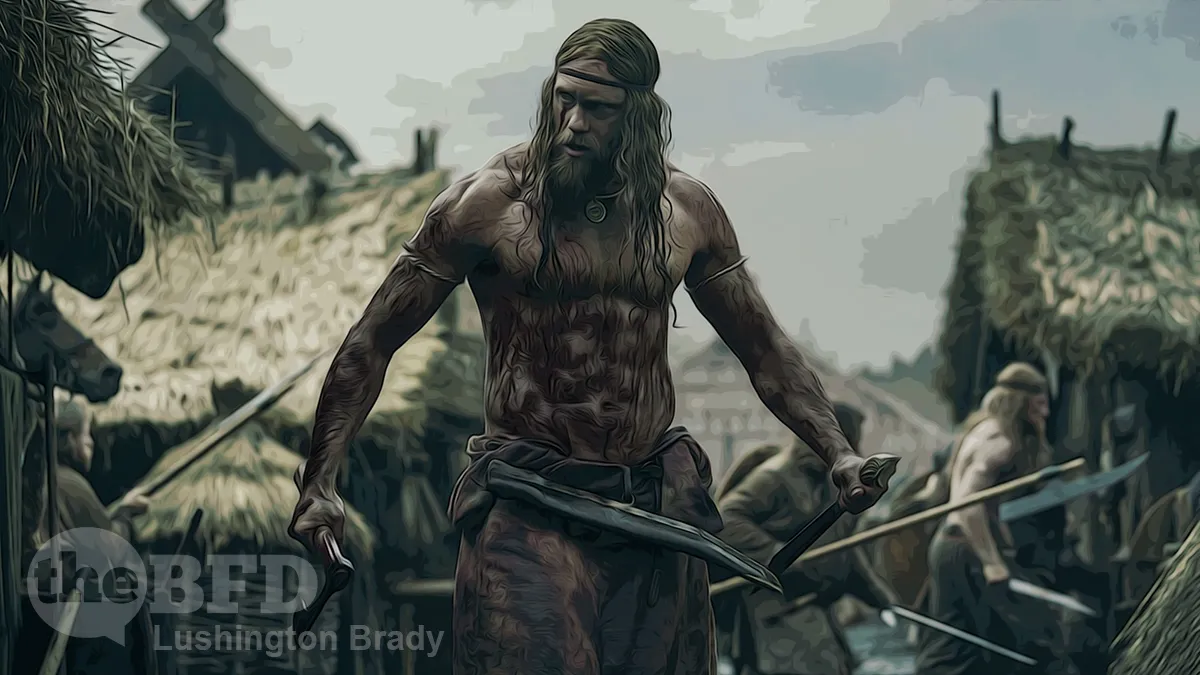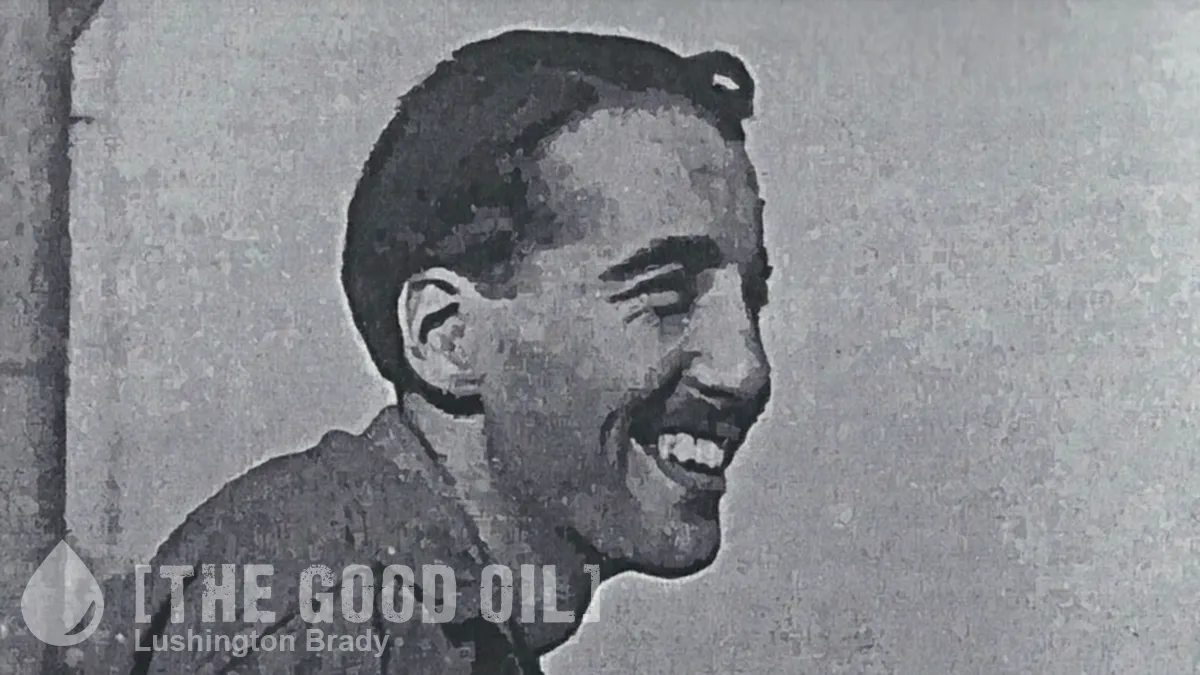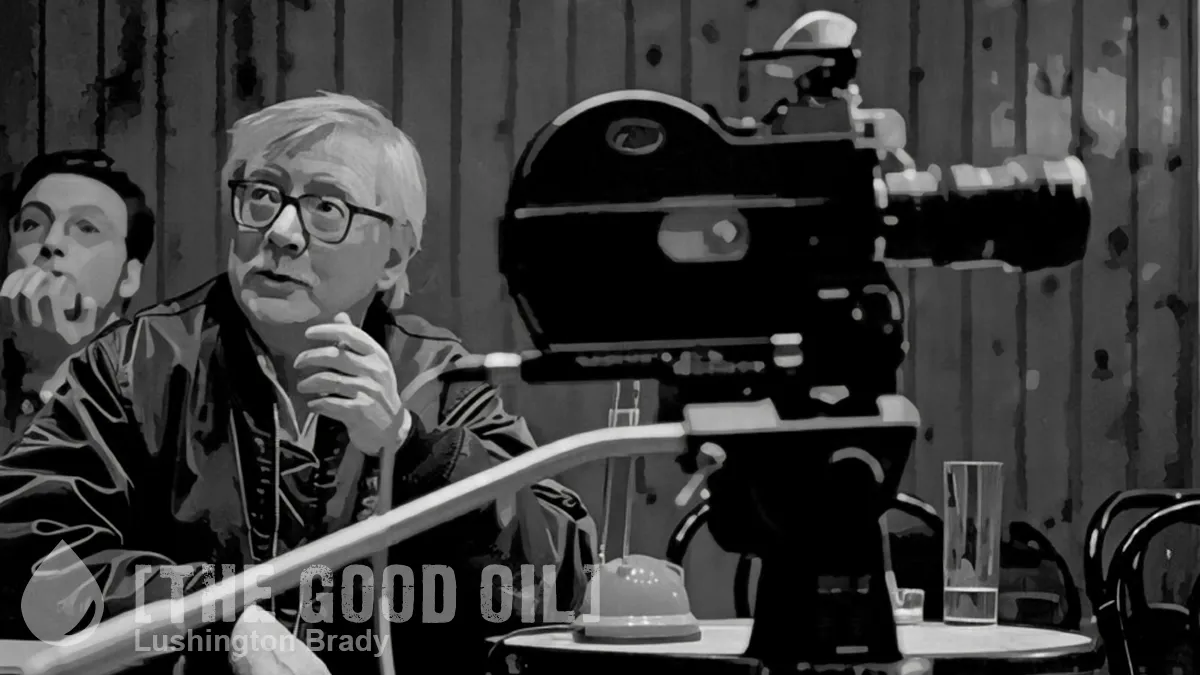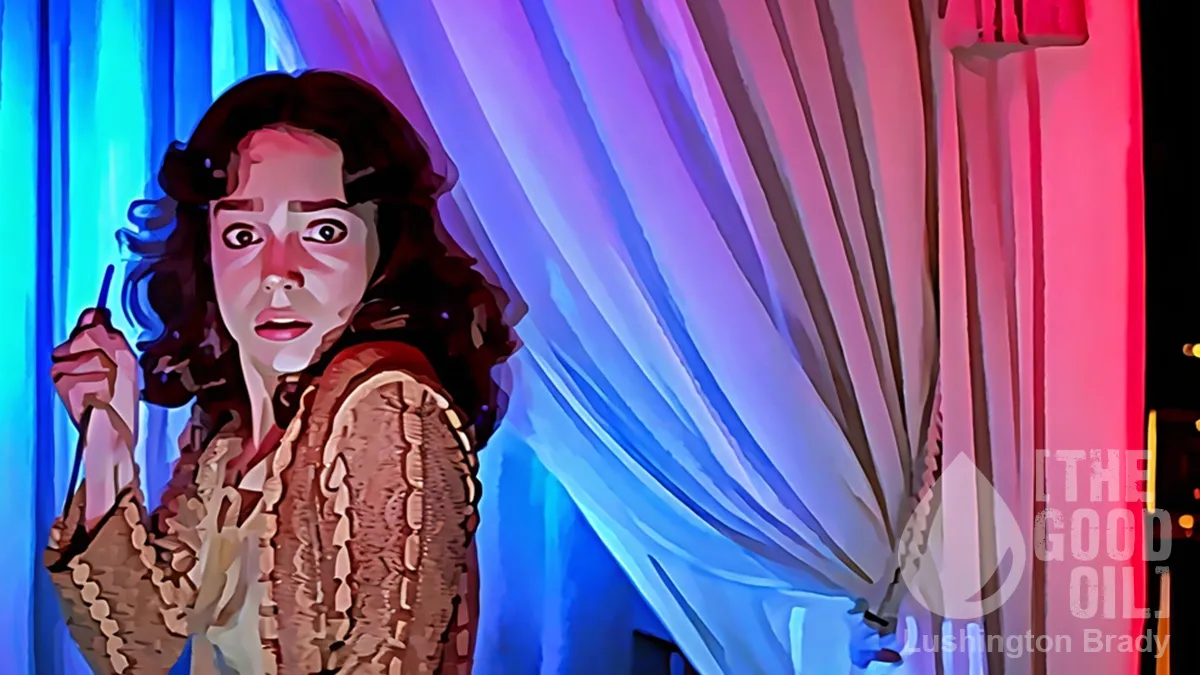Table of Contents
Robert Eggers is known for the rigorous historical verisimilitude of his films, so it’s no stretch to say that his The Northman is Hamlet as it might really have been.
The Northman is, in fact, based loosely on Danish historian Saxo Grammaticus’s telling of the legend of a Prince Amleth — the same source which directly inspired Shakespeare’s great tragedy. But it is very far from the mannered Elizabethan telling of the Bard. Eggers also obviously tips his hat to Conan the Barbarian; Amleth is every inch the loincloth-clad Cimmerian who lets his sword do the talking. Eggers presents a brutally un-romanticised vision of Vikings that makes the Vikings TV show look like Disney by comparison.
The story is familiar to anyone who knows their Shakespeare: In the late 9th century, young Prince Amleth (Alexander Skarsgard) witnesses the betrayal and murder of his father Aurvandill (Ethan Hawke) at the hands of his uncle Fjolnir (Claes Bang). Amleth escapes and joins a band of beserker raiders, swearing to seek vengeance. After years of bloody raiding an encounter with a seer during a slaving raid in Russia finally sets Amleth’s plan for revenge in motion. He cuts his hair, brands himself as a slave and allows himself to be carried off in thralldom to his uncle’s farm.
Set 50 years before the Danes converted to Christianity, The Northman is steeped in Viking mysticism. Beserkers rave and howl like wolves and ravens appear ominously. In true Eggers style, reality and mystic vision intertwine seamlessly. The Norns weave their webs, the lines of kings hang from the World Tree, and Valkyries carry slain warriors to Valhalla.
Thankfully, Eggers’s commitment to verisimilitude doesn’t extend to having the dialogue entirely in Viking-era Danish, although often the genuinely guttural Viking accents might as well be in a foreign language. On the other hand, that determination for historical accuracy means we are spared Hollywood’s obsession with forced diversity: there are no black Viking queens here.
Skarsgard’s Amleth is not the anguished, existential hero of Shakespeare, but a raw, bloody, killing machine with a single purpose. He hacks, bites and punches his way to that end with single-minded purpose that not even the most shocking revelations of the truth of his past can deter. Anja Taylor-Joy, star of Eggers’s The Witch, reprises her wide-eyed witchiness as Slavic sorceress and Amleth’s love interest, Olga. Another Eggers regular, Willem Dafoe, delivers an appropriately bonkers performance as jester/shaman Heimir. Nicole Kidman delivers a fine performance as Amleth’s mother, Gudrun — although her polished, botoxed features seem weirdly out of kilter with the mud and blood of Viking society. Ethan Hawke, enjoying a renaissance in his career, is almost unrecognisable as Aurvandill.
Eggers’s The Lighthouse explored the descent into madness from within the mind of the lunatic. The Northman similarly roams the boundaries between reality and unreality, as mediated by pagan mysticism, and the derangement of ritualised monomania. In the end, is Amleth his own man, or merely a tool of the gods, set on a path of destiny that he cannot avoid?
Hamlet said, “There is nothing either good or bad, but thinking makes it so”. Amleth doesn’t even have to think about it. Amleth is all bloody, sinewy being. The Northman is a visceral, bloody, visually stunning, existentially bleak story of the pagan Vikings’ uncompromising vision of a harsh, brutal world.









